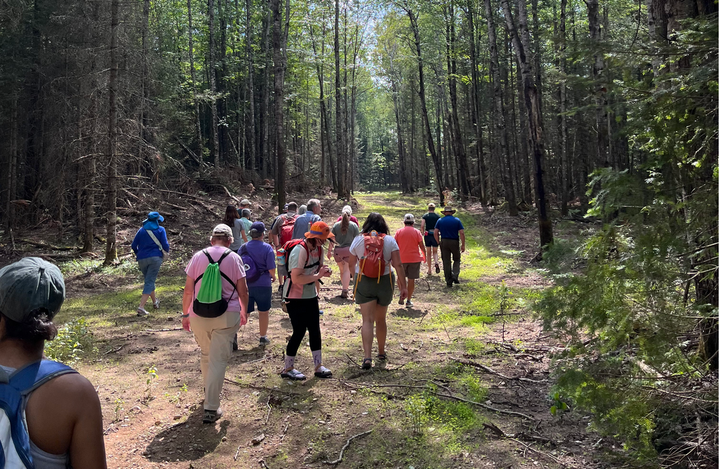Stay Safe and Sober While Recreating This Holiday Weekend
As people flood the Northwoods this holiday weekend seeking fun-in-the-sun on the area's many trails and lakes, officials remind people to keep safety in mind whether they're on a boat, cruising in their ATV/UTV, or operating their daily driving vehicles.
The Wisconsin DNR will join law enforcement agencies nationwide for Operation Dry Water, an annual campaign to prevent boating while impaired to keep waters safe for all during the July 4-6 holiday weekend. The campaign officially kicks off July 2 in Green Bay.
Boating under the influence is illegal in Wisconsin, and impairment from alcohol or drugs significantly increases the risk of incidents, injuries and fatalities. Nationally, alcohol continues to be the leading known contributing factor in recreational boater fatalities and a significant cause of boating incidents, according to the most recent U.S. Coast Guard Recreational Boating Statistics.
DNR conservation wardens and local law enforcement will be on area lakes and rivers for Operation Dry Water, sharing education about safe boating while watching for operators who may be impaired or causing safety problems for themselves and others.
Operation Dry Water promotes a zero-tolerance policy for alcohol on the water, meaning they encourage everyone on the boat — not just the operator — to remain sober. Research shows that impairment also poses risks to passengers.
“We want everyone to enjoy Wisconsin’s beautiful waterways this holiday weekend, but safety must come first,” said Major April Dombrowski, director of the DNR's Recreational Safety and Outdoor Skills Bureau. “With Wisconsin hosting the national kickoff event in Green Bay, we are proud to lead the charge in keeping boaters safe across the country.”
The DNR urges people to take a boater education course and enjoy the waters sober, noting that alcohol blurs a person's judgment, reaction time and abilities.
In addition, everyone on the boat should always wear a properly fitted and fastened life jacket when on or near the water. "A life jacket will keep you on top of the water if you walk off an unexpected drop-off, a wave or current overpowers you or you fall out of a boat," Dombrowski said. She noted that river shorelines and sandbars can pose unseen dangers, adding that higher, fast-moving water can tax an individual's boating, paddling and swimming skills. "Keep an eye on the weather and always tell someone where you are going, and create a float plan and tell people when and where you plan to depart and return before going for a float or paddle," she said.
Operation Dry Water is coordinated by the National Association of State Boating Law Administrators in cooperation with law enforcement agencies nationwide.
On Land
Meanwhile for those staying on land, the DNR reminds those on ATV/UTVs to ride sober and watch their speed as upcoming holiday celebrations mean busier trails.
Last year, there were 21 alcohol-related ATV/UTV deaths in Wisconsin, and this year the number is up to 19 already, with alcohol and speed as contributing factors in many of the incidents. Many of these tragic crashes could be prevented by following the rules of safe riding, with sober operation being one of the most important.
"Riding smart isn't just about keeping yourself safe. You never know how your actions can influence younger riders," said Lt. Jacob Holsclaw, Wisconsin DNR off-highway vehicle administrator. "It's really important for folks to consider who they might be influencing when they're getting on their machines. Parents, older siblings and grandparents are all setting an example for the younger generation of riders.
"When they see an older rider without a helmet or seatbelt, they might think it's okay for them to do the same. We want to provide our young riders with an example of how to be a safe operator," he added.
Holsclaw urges riders to follow other safety tips when operating a recreational vehicle, including never consuming drugs or alcohol before or during the ride, not traveling in unfamiliar areas, following all posted speed signs and regulatory signs, and letting someone where you are going and when you'll return.


